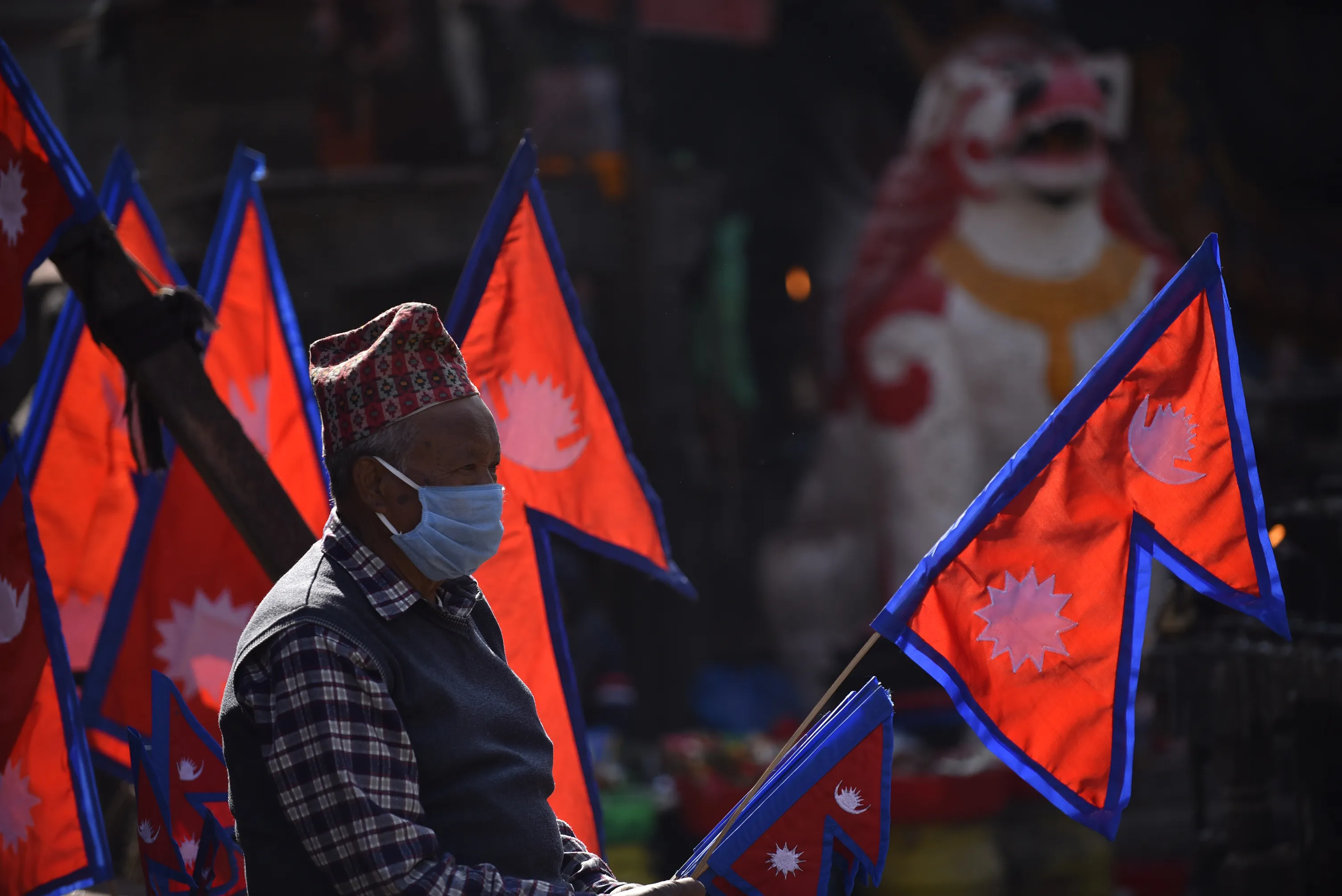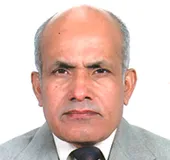
Nepal signed an agreement to receive grant assistance worth US $500 million with ‘Millennium Challenge Corporation-Nepal (MCC-Nepal)’ of the United States of America (USA) in September 2017; at the time, none of the political pundits or even the government could envisage that it could trigger a controversy that could not only divide the entire spectrum of the society but also invite a still bigger crisis for the future of the country. After four years, the problem has culminated to the extent that the present coalition government under Prime Minister Sher Bahadur Deuba could
split any day.
Through the MCC project, Nepal is expected to develop an electricity grid of 400kVA transmission lines that could distribute power not only in the domestic market but also help in exporting it to India. Additionally, the implementation of the MCC could
boost the Nepalese economy in terms of raising employment opportunities as well as raising the per capita income. But in case the agreement is not ratified by the Parliament, chances are high that the
power producers in the country would lose a whopping amount of Rs. 142 billion annually.
Through the MCC project, Nepal is expected to develop an electricity grid of 400kVA transmission lines that could distribute power not only in the domestic market but also help in exporting it to India.
Therefore, Prime Minister Sher Bahadur Deuba is striving to get the MCC passed through the Parliament without any further delay, even if that means splittingthe coalition government. Also, he might lose his credibility in the international arena if he fails to push it through the Parliament.
But the chances of support on this issue by the key coalition partners in the government—the Communist Party of Nepal - Maoist Centre (CPN-MC) and the Communist Party of Nepal - Unified Socialist (CPN-US)—seems to be a remote possibility. These two political parties want certain changes in the agreement, but there is little room for that in MCC. They oppose it for they feel that there is a military component in it, and also, that it falls under the Asia Pacific strategy of the USA. They also fear that Nepal’s sovereignty would be at stake if the MCC is ratified by the Parliament.
Some people opine that if the massive grants for development activities under the MCC become untouchable for Nepal, how would it receive
aid from multilateral agencies like the World Bank, the International Monetary Fund, the Asian Development Bank, and bilateral partners like India, China, Germany, or Britain? There is a wider perception that the aid from the Western block would be drastically affected in case Nepal fails to ratify the MCC.
Media reports confirm that Beijing wants Nepal not to
support the MCC as that could undermine the Belt and Road Initiative (BRI) signed between Nepal and China in 2017. It is believed that certain political leaders, including Agni Sapkota, the Speaker of House of Representatives (HoR), the Lower House of the Nepalese Parliament, are not cooperating with the government on the issue of ratification of the MCC for this reason alone.
Media reports confirm that Beijing wants Nepal not to support the MCC as that could undermine the Belt and Road Initiative (BRI) signed between Nepal and China in 2017.
In his bid to create a common position amongst the coalition partners, the Deuba government had constituted a task force on 19 December 2021, to study the US grant under MCC. Before that in February 2020, a similar task force had also been created under the former Prime Minister Jhal Nath Khanal to suggest the party leaders about the pros and cons of the MCC. But because of the sharp divisions amongst the members, both the two task forces remained
inconclusive.
To clarify the concerns of some of the political leaders,
a slew of higher officials from the USA visited Nepal and tried to convince the Nepalese that there was no military component in the MCC agreement. They added that if Nepal refused to pass the MCC through the Parliament, the grant amount would be given to other countries.
However, it is strange that the MCC is already in operation even when it is not ratified by the Nepalese Parliament. In Nuwakot, the district north of Kathmandu Valley, a big chunk of land has been acquired for this project for which Rs. 4 billion has already been paid by the MCC office in Kathmandu. Such an amount has been spent from the additional funds of US $13 billion that the Nepalese government is expected to contribute over and above the American grant amount of US$ 500 million for the implementation of the project.
In an important development on 6 February, two confidential letters exchanged with the MCC headquarters were leaked to the media—the one that was jointly signed by Prime Minister Sher Bahadur Deuba and Maoist leader Pushpa Kamal Dahal on 29 September and the other that the MCC had responded to those leaders. In the joint letter sent by Deuba and Dahal to MCC on 29 September, they had assured their support to MCC ratification in the Parliament in
four-five months. They also committed that they would try to create a consensus amongst the different political parties for its ratification during that period. Since the five-month time is going to end up on 28
February, the MCC in response had asked the two leaders to stick to their comments. The MCC in its letter to the two leaders also warned that failing to ratify the MCC would mean that it would end the MCC partnership with Nepal in its board meeting in March 2022.
The leaking of the confidential letters has put Maoist leader Dahal in a difficult positionbecause publicly he says that he would not help in the ratification of MCC until it is amended and on the other, he assured the MCC of his unequivocal support as
no mention is made in the letter about the amendment of MCC clauses. It is not yet known who leaked the confidential letters to the media, but this has certainly invited
further rift between the coalition partners, the Nepali Congress and the CPN-MC.
Now it seems that the differences amongst the government coalition partners have sharpened to such an extent that it would not be possible for them to give up their stand on the MCC ratification issue. In such a case, the possibility is high for the coalition government in Nepal to split. But it would not be so easy even for Prime Minister Deuba to break the coalition government. If he takes the risk of breaking the coalition government and getting the MCC ratified by the Parliament with the help of CPN-UML led by KP Sharma Oli and that Loktantrik Samajbadi Party led by Mahanth Thakur—it is possible to do so as together they command a majority—then, it opens up another possibility where the three factions of the communist block—the one led by Dahal and the other led by Madhav Kumar Nepal to get united with the CPN-UML led by KP Sharma Oli. In such a case, the Nepali Congress of which Deuba is the leader might find it increasingly difficult to face them in the forthcoming local elections that are due in May and also in the provincial and federal elections thereafter in 2022. It is now for Prime Minister Deuba to decide how he could address the turmoil over the MCC issue that is going to shape the future of the country.
The views expressed above belong to the author(s). ORF research and analyses now available on Telegram! Click here to access our curated content — blogs, longforms and interviews.



 Nepal signed an agreement to receive grant assistance worth US $500 million with ‘Millennium Challenge Corporation-Nepal (MCC-Nepal)’ of the United States of America (USA) in September 2017; at the time, none of the political pundits or even the government could envisage that it could trigger a controversy that could not only divide the entire spectrum of the society but also invite a still bigger crisis for the future of the country. After four years, the problem has culminated to the extent that the present coalition government under Prime Minister Sher Bahadur Deuba could
Nepal signed an agreement to receive grant assistance worth US $500 million with ‘Millennium Challenge Corporation-Nepal (MCC-Nepal)’ of the United States of America (USA) in September 2017; at the time, none of the political pundits or even the government could envisage that it could trigger a controversy that could not only divide the entire spectrum of the society but also invite a still bigger crisis for the future of the country. After four years, the problem has culminated to the extent that the present coalition government under Prime Minister Sher Bahadur Deuba could PREV
PREV


